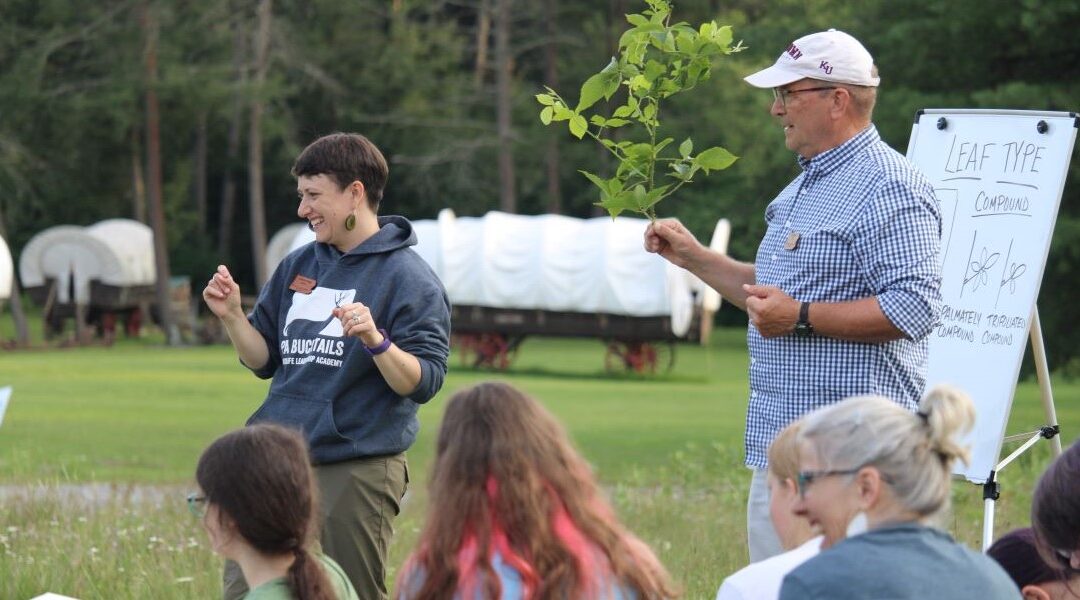
Empowering a Community of Conservation at the Wildlife Leadership Academy
Being part of the communities we serve goes beyond delivering safe, reliable electricity. Through PPL Foundation Empowering Communities Grants, we support local programs focused on environmental stewardship and education, economic development and/or workforce development.
The Wildlife Leadership Academy in Lock Haven recently received a grant from the PPL Foundation. The academy’s using this funding for its programming, allowing students to have more printed materials and hands-on learning opportunities in its field schools.
Now in its 18th year, the academy hosts five different field schools during the summer. It has held 57 field schools and graduated over 1,000 alumni across Pennsylvania and 13 other states.
“We aim to engage and empower high school-aged youth to become conservation ambassadors,” said Sara Mueller, Executive Director of the Wildlife Leadership Academy. “Once they’ve engaged with us for a week, they go back into their communities and do outreach, service projects, creative arts projects, engaging with the media – really having an impact.”
The academy welcomes 100 new students every year, developing conservation and leadership skills through hands-on teaching. The students are broken into teams and led by a peer mentor who took the course the previous summer.
“The a-ha moment is the most rewarding piece for me,” Mueller said. “Students come to us with an idea of what conservation and leadership are, and we really engage them over the course of the week. We don’t just watch the student change, but we then watch how they change their communities.”
The students say that the 40+ hours they spend at the academy is a transformative experience.
“The experience has allowed me opportunities and I have been impacted in many ways,” said Sarah Klecanda, a former student. “It’s important that we teach others to protect our natural world; education will help us toward our goal of conservation.”
As the academy gears up for another wave of students, it’s beginning a new program that will use fly fishing as the hook for interested conservationists. Mueller hopes this program, called the Stepping Stones Program, serves as a stepping stone toward a future of possibilities for the academy.
“We can take that recreational aspect and apply it to several other outlets like bird watching and canoeing,” she said. “We’re also looking to expand the opportunities that we already have for our alumni. So many people learn by doing, so we give them the book knowledge and the opportunity to apply that knowledge in the field. We’re creating conservationists, but we’re also creating leaders.”
